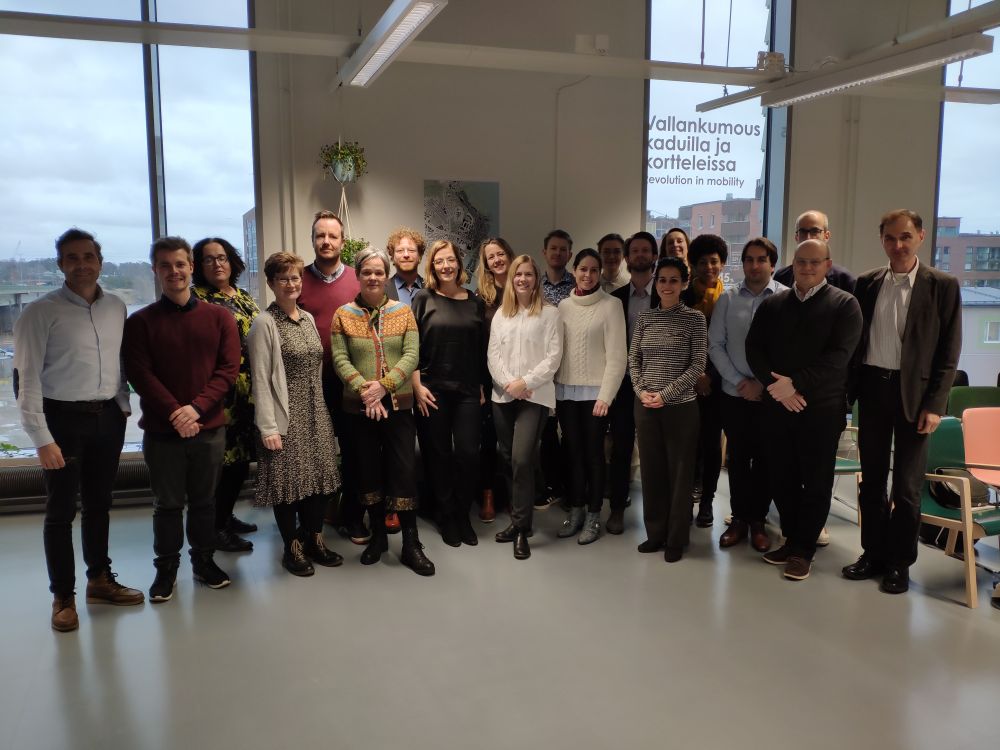Six European cities will use artificial intelligence to move towards carbon neutrality
28 January 2020
Helsinki, Amsterdam, Copenhagen, Paris Region, Stavanger and Tallinn will challenge companies to develop innovative solutions in the fields of energy and mobility.
AI4Cities is a three-year EU-funded project bringing together leading European cities looking for artificial intelligence (AI) solutions to reduce their greenhouse gas emissions and meet their climate commitments. Helsinki (Finland), Amsterdam (Netherlands), Copenhagen (Denmark), Paris Region (France), Stavanger (Norway) and Tallinn (Estonia) are the six European cities and regions involved in this project that has just kicked off.
Through AI4Cities, these cities and regions will go through a Pre-Commercial Procurement (PCP) process, an innovation procurement tool that enables the public sector to steer the development of new solutions directly towards its needs. First, the buying authorities will define the needs and requirements for solutions in the energy and the mobility fields that they would like to see developed in order to move towards carbon neutrality. Then, they will challenge startups, SMEs, bigger companies and other relevant stakeholders to design innovative solutions applying the use of AI and related enabling technologies, such as 5G, Internet of Things (IoT), cloud computing and big data applications. The total funding amount to be divided among the selected suppliers throughout the whole PCP process is 4.6 million euros.
“Cities and regions have a lot to say and do when it comes to climate action. We are very well placed to support our national governments in achieving the climate goals. AI4Cities shows our leadership and our willingness to use the power of pre-commercial procurement to boost innovation, artificial intelligence and sustainability in Europe,” said Kaisa Sibelius, coordinator of the AI4Cities project and project manager at Forum Virium Helsinki.
AI4Cities is divided into five main phases: one preparatory phase (0), three standard PCP phases (1-3) and one final impact assessment and follow up phase (4). During the preparation phase (Phase 0), the procuring cities will organise a series of activities – roundtables, workshops, and matchmaking events, amongst others – aimed at ensuring that open market consultation is an ambitious co-creation exercise. The PCP process will consist of a solution design phase (Phase 1), a prototype phase (Phase 2) and a prototype testing phase (Phase 3). AI4Cities will reach the supply side, selecting and funding a minimum of 40 contractors (20 for the energy challenge and 20 for the mobility challenge) who, during Phase 1, will present their reports with a concept design, results of their feasibility studies and conclusions. Then, a minimum of 20 contractors (ten for each of the two challenges) will be invited to develop their prototypes in Phase 2. Finally, a minimum of six contractors (three and three) will make it into Phase 3 where a series of larger scale pilots will be undertaken.
To maximise the potential impact of the project, a group of cities will be recruited to follow the PCP process and support the uptake of the outcomes. ICLEI will be responsible for that, as well as for developing some procurement guidelines. The final stage (Phase 4) will focus on promoting PCP results for interested parties.
The participants of AI4Cities are six like-minded cities with strong experience in using ‘Smart Cities’ solutions, IoT and open data to address citizens’ needs, and ICLEI, a global network of cities pushing sustainable urban development forward.
All news
